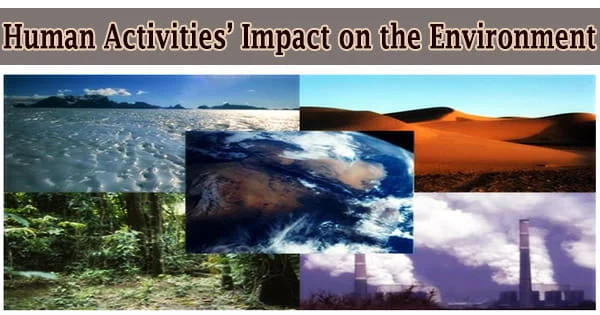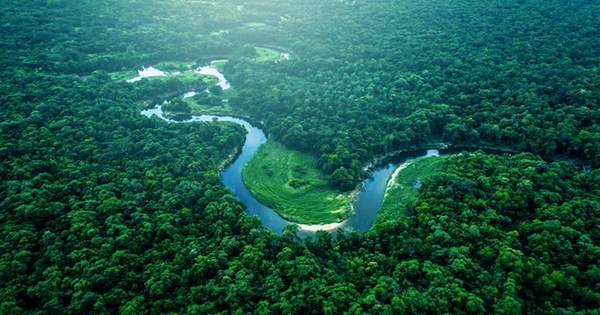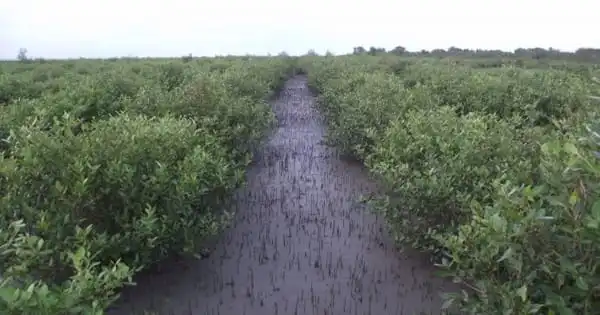Humans have a variety of effects on the environment. Reduced water quality, increased pollution and greenhouse gas emissions, loss of natural resources, and contributing to global climate change are all common consequences. Some of them are direct consequences of human actions, while others are subsequent impacts of a succession of actions and reactions.
Changes to biophysical environments and ecosystems, biodiversity, and natural resources caused directly or indirectly by humans are referred to as anthropogenic impacts on the environment. Examples include global warming, environmental degradation (such as ocean acidification), mass extinction and biodiversity loss, ecological crisis, and ecological collapse.
Hundreds of extinctions have been directly traced to human activities in the last two centuries, as opposed to the millions of years that extinctions occur naturally. Humans have impacted the globe in unimaginable ways as we go through the twenty-first century. The impact of humans on the environment has become a hot topic among university professors around the world.
Water Pollution
Excess nutrient inputs are one of the most significant human influences on aquatic systems. Nutrients like nitrogen and phosphorus are critical for aquatic plants and animals’ health and survival.
Humans, on the other hand, add vast amounts of nutrients, primarily through fertilizer usage. Overgrowth of some bacteria and algae, which consume the oxygen required for other species to exist, can quickly degrade water quality.
The fact that these nutrients can be carried downstream to other streams, rivers, and bays is even more worrisome. Nutrients can thereby degrade water quality in locations distant from where they were first introduced.
Air Pollution
Human activities are responsible for the majority of air pollution. Increased fossil fuel burning from automobiles, factories, and power plants, for example, releases enormous amounts of air pollutants like carbon monoxide, ozone, and nitrous oxides into the environment.
Other contaminants in the air, such as lead-based chemicals, can cause major health problems such as cancer, as well as reproductive issues, and birth defects.
Overpopulation
Since death rates have reduced, medicine has improved, and industrial agricultural methods have been adopted, overpopulation has become an epidemic, keeping humans alive for much longer and increasing the total population. Overpopulation has a number of negative consequences, the most serious of which being environmental deterioration.
Humans require a lot of room, whether for farms or businesses, both of which take up a lot of space. As the population grows, more clear-cutting occurs, causing ecosystems to be badly harmed. CO2 levels rise when there aren’t enough trees to filter the air, which has the potential to harm every living thing on the planet.
Another issue is our reliance on coal and fossil fuels for energy; as the population grows, so will the use of fossil fuels. The burning of fossil fuels (such as oil and coal) releases large amounts of carbon dioxide into the atmosphere, endangering the extinction of thousands of species and compounding the effects of forest loss.
Genetic Modification
Genetically modified organisms (GMOs) have played an important role in human survival and prosperity. GMOs are specially grown crops or crops that have had DNA physically implanted into them to offer them a competitive edge, such as the ability to withstand colder conditions, use less water, or yield more product.
GMOs, on the other hand, are not always unintentional. For years, humans have employed glyphosate, a herbicide designed to kill weeds, which are the most serious threat to any plant. However, just as people have a learning immune system, certain weeds have evolved resistance to 22 of the 25 herbicides currently in use, with 249 kinds of weeds entirely immune, according to the most recent scientific report.
Climate Change
According to the United States Environmental Protection Agency, human activities are mostly to blame for global warming, owing to carbon dioxide and other greenhouse gas emissions.
This rise in temperature is affecting where crops can grow and where certain fish and animals can be found, both of which are essential for feeding a growing human population. Glaciers are melting as a result of rising global temperatures, releasing water that raises sea levels and threatens coastal populations and economies that rely on coastal resources.
Deforestation
As the human population grows at an exponential rate, more food, resources, and shelter are produced at incredible speeds, with the majority of these products coming from forestry. According to worldwide data, an estimated 18 million acres of trees are clear-cut each year to make way for new development and wood products, accounting for just under half of all trees on the planet since the beginning of the industrial revolution.
Because trees are one of the major generators of oxygen, this is plainly not healthy for humans and especially bad for the creatures who live in the forest. Deforestation is a huge threat to the survival of millions of different species that live in forests, making it a major conservation issue.
It also raises greenhouse gas levels in the atmosphere, contributing to even more global warming. If we are to exist, such human activities must cease. Recent research have linked deforestation to an increase in flames in places like the Amazon. Wildfires devastate the environment, even more, displacing people and entire species.
Solutions
There are a number of basic things that people may do on a daily basis to reduce their environmental effects. Taking public transportation, biking, or walking instead of driving, for example, will cut CO2 emissions.
Reduced fertilizer application to lawns, gardens, and vegetables reduces the likelihood of adjacent water pollution, which is good for drinking water and human health. Using less energy at home can help to reduce the amount of pollutants released into the atmosphere by coal-fired power stations. Any activity that reduces water and energy use has the potential to benefit the environment.
















